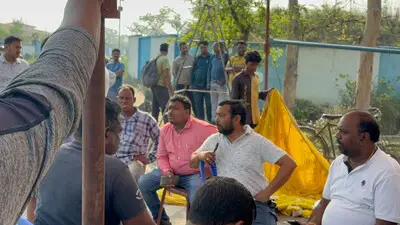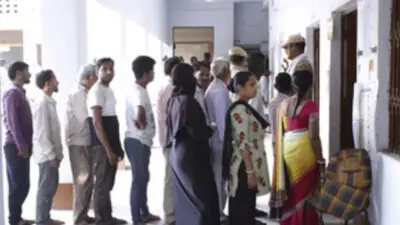Recommended Stories
Motti Lerner, whose play "In the Dark" was performed here recently, was in conversation with writer Savyon Liebrecht during the Delhi leg of the fourth edition of the Kovalam Literary Festival today. Both attempted to share their viewpoints on whether Art can help change reality.
"I belong to a different genre probably of writers who want to confront politics, deal with things that are fatal to life and put it on stage. This way you can introduce a new discourse into society and maybe a great idea can bring a change in the way society thinks," says Lerner.
His "In the Dark", which debuted in India on the Delhi stage recently, dealt with issues related to the return of an Israeli pianist from the US after 18 long years.
"If audiences can come out of a play going through the catharsis that the protagonist experiences, we can influence them to create change in society," said Lerner. However, Savyon Liebrecht differs from Motti Lerner.
"Some people believe art or plays or the creative field can change reality. I do not think so. I think the most we can do is to change the attitude of private people through stories. If change takes place it does in the heart of the readers."
Liebrecht`s stories often deal with the influence of social and political issues on the smaller spheres of family and personal relationships. She read out excerpts from one of her first stories "Apples in the Desert" which has been prescribed for the Matriculate school students in Israel.
Born to survivors of a death camp who immigrated to Israel when she was a year old, Liebrecht said "writers should not be committed to things... and have strong obsessions. The more ambiguous they are the more complex their characters are.
I feel compelled and committed about the Holocaust as it might be- in 20 or 30 years- the only reference for our children and I don`t want to invent things."
Lerner pointed out that he was compelled to explore political events by dramatising true stories. He picked a true story of how a Jewish doctor had in a fit of insanity shot down 29 people in 1995.
"The act shocked me enough to explore and create a new discourse about the role of religion and fundamentalism in society," he said. While it was a first visit to India for Liebrecht, Lerner has worked as a faculty at the Jawaharlal Nehru University here last year.












